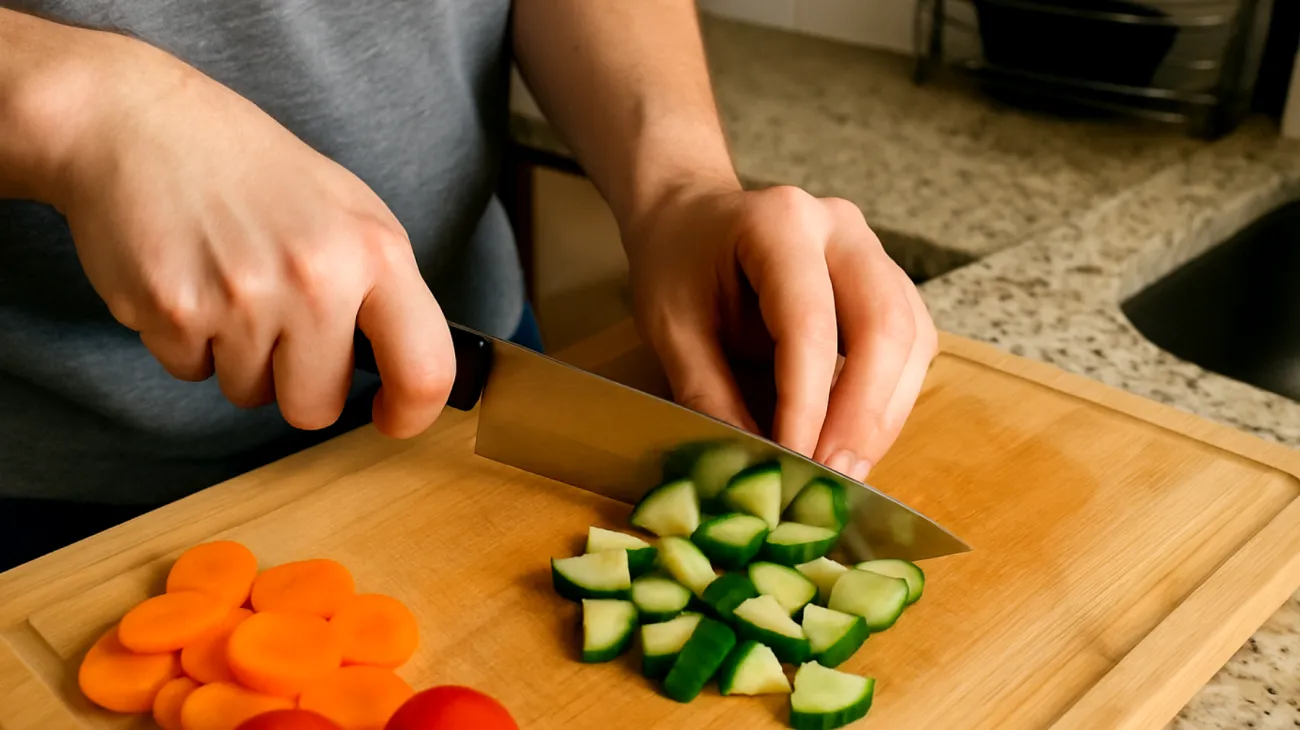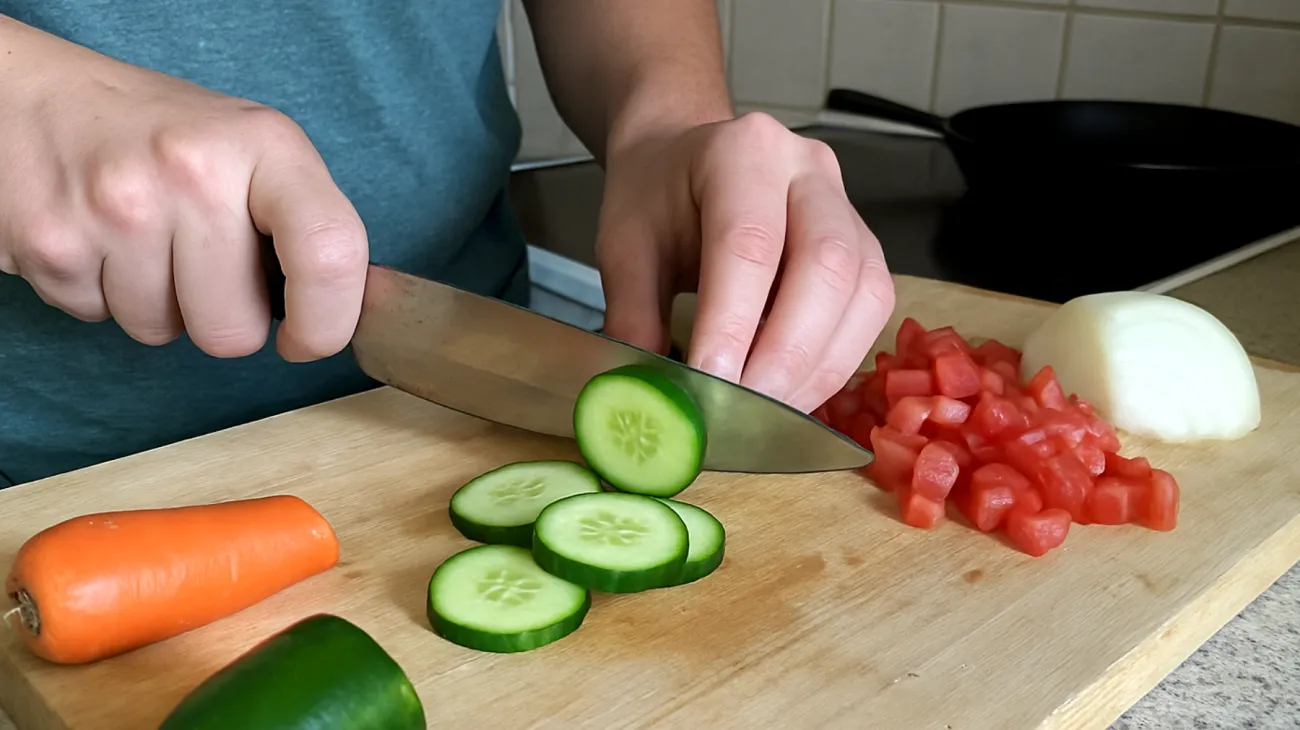A loose-handled potato masher may not seem like a serious threat. After all, it’s just a tool for softening boiled potatoes. But in practice, that small mechanical flaw can quickly lead to painful wrist strain, sudden slips, or even minor injuries if the handle detaches mid-use. In thousands of households, an overlooked masher becomes a silent safety risk—especially for the dominant hand, which bears the brunt of the downward force.
More than just a utensil, the potato masher is a manual lever system, designed to transfer high pressure in a narrow, vertical motion. When that system is compromised—when the handle is even slightly loose—it forces the wrist to compensate unpredictably. That’s when small accidents happen: sudden jerks, fingertip pinches, and even hot splashes if mashing directly in hot liquids.
The Hidden Danger of Kitchen Equipment Failures
Kitchen-related hand injuries represent a significant category of domestic accidents, though research has focused primarily on powered equipment rather than manual tools. According to a systematic review published in PubMed Central examining meat grinder-related hand injuries, kitchen equipment can pose substantial risks when mechanical systems fail or are improperly used. This comprehensive study analyzed 13 studies comprising 121 patients from January 1975 to June 2024, finding that meat grinders rank among the top 10 objects involved in hand amputations with a 90% amputation rate.
While this research focused specifically on powered meat grinders rather than manual tools like potato mashers, it demonstrates the potential severity of kitchen equipment injuries when mechanical components fail or when users lose control of the implement. The study’s findings highlight how seemingly routine kitchen activities can result in serious injuries when equipment malfunctions or is used improperly.
Why a Detached Masher Handle Poses a Real Safety Concern
Kitchen tools go through a lot of repetitive stress, but tools like mashers are exposed to far more vertical load than most utensils. When boiling-soft potatoes are mashed, they offer resistance despite their softness. To counteract that, the user must press down with steady force. Over time, especially in mashers with two-part assembly (a metal rod welded or bolted to a plastic or wooden handle), the connection point deteriorates.
The mechanical principles involved mirror those studied in other manual equipment research. When the handle is even slightly wobbly, several concerning dynamics emerge: the applied force doesn’t follow a strict vertical line, micro-shifts in the handle create torque that the user subconsciously fights against, and that rotational force can slip the grip of fingers using the tool, especially if hands are wet or greasy.
This is more than a question of ergonomics. In older models, particularly vintage-style wooden-handled mashers, glue is the only thing holding the components together. With age and repeated washing, even dishwasher exposure, the bonding may fail completely—sometimes without visible warning signs.
The Mechanics of Failure and Injury Risk
Research on agricultural equipment injuries provides relevant insights into how manual tools can cause hand trauma when mechanical systems fail. That’s when the upper handle detaches suddenly, resulting in sudden loss of control over a forcefully mashed object, risk of wrist overextension or minor sprains due to unexpected release of pressure, burns from hot mash or scalding liquid in the bowl or pot, and slips resulting from falling or flying utensils that land on the floor unexpectedly.
The repetitive vertical force applied during mashing creates cumulative stress on joint connections. Unlike catastrophic failures seen in powered equipment research, masher handle failures typically develop gradually, creating a false sense of security. Users may notice slight loosening but continue using the tool, not realizing that partial failures can be more dangerous than complete ones because they create unpredictable mechanical responses.
How to Check for Structural Integrity Before Every Use
A basic handle inspection takes fewer than five seconds and could save a lot more time in cleanup, injury, or equipment replacement. Here’s how to reliably check the masher before each use: grip the mashing head firmly with one hand and the handle with the other, then apply moderate twisting force in both directions. No movement at all should happen—any side-to-side additional play or feel of “give” is a sign of loosening.
Look at the junction point between handle and stem. In metal mashers, inspect the weld for any faint line or crack that you can catch with a fingernail as early evidence of fatigue. In wooden-handled models, look for signs of separation or absorbed water. In plastic-handled versions, check for internal play, especially with riveted designs where the rivet might be tight but the stem is shifting inside.
Don’t assume a masher is safe just because it’s made of stainless steel or appears “solid.” Often, the failure point is not the material but the bond between materials—especially between metal and plastic, or metal and wood.
Replacing Faulty Mashers: Why It’s Not Worth Repairing
Once the handle starts to loosen, the risk amplifies with every use. Some people attempt DIY fixes like re-gluing, winding tape around the stem, or even using pliers to press the joint tighter. All of these are temporary at best—and potentially dangerous in practice.

The same mechanics that make a potato masher effective also undermine these fixes. The repetitive force works against the adhesive, and few glues—especially common household types—are designed for repeated exposure to moisture or boiling water vapor, high mechanical stress from vertical mashing, and food safety requirements like non-toxic, heat-stable adhesives.
Unless you’re an experienced metalworker or own a MIG welder, professional repair isn’t practical. Quality mashers cost around $10 to $20. The potential risks, even small ones, far outweigh the minor cost of replacement.
The Best Materials and Constructions for Safe Mashers
The safest and longest-lasting models tend to follow the same structural principles: monolithic construction or secure industrial fasteners. All-metal construction, preferably stainless steel, includes mashers made from a single piece or with a fully welded handle-to-masher design. One-piece nylon or heat-resistant silicone mashers, though less durable than metal, eliminate the risk of detachment through their solid-mold designs.
- All-metal construction with fully welded connections
- One-piece molded silicone or BPA-free nylon designs
- Commercial-grade riveted handles with metal-to-metal contact
- Stainless steel models with no visible joint gaps
Research on tool failures across various industries consistently shows that connection points between dissimilar materials represent the highest risk areas for mechanical failure. Avoid wooden-handled mashers unless marked as “sealed” and food-safe varnished, DIY or off-brand mashers from non-reputable sources, and combination models with decorative caps or screw-topped handles designed for aesthetics rather than durability.
Storage and Maintenance That Prevents Failures
Even well-designed mashers can become hazardous if stored or maintained carelessly. In too many kitchens, the masher lies angled under heavy tools, constantly knocked around every time the drawer opens or closes. That applied movement—however small—strains the joint between the handle and stem, leading to steel fatigue or wood splitting.
To minimize mechanical stress and preserve the masher, hang it vertically using a wall hook or rail system to minimize torque and keep the handle dry. If using a drawer, segregate with utensil holders so it’s not directly struck by metal spoons, whisks, or ladles. Always dry completely before storage, especially for wood or multi-material designs, as moisture seeps into joints and contributes to weakening.
Avoid dishwasher cycles for wooden or composite-handled mashers unless explicitly labeled dishwasher-safe, as steam weakens adhesives and warps material bonds. Store potatoes in a cool, dry, dark place to ensure they’re always at the right consistency for safe mashing without excessive force.
Smart Mashing Technique Reduces Equipment Stress
Excessive mashing force is part of the problem when considering the mechanical loads involved. Mashing potatoes should not require the upper-body force of an overhead press. If it does, there’s either a problem with your potatoes or the masher design.
Over-mashing—often involving rapid or forceful pressing—adds mechanical strain to both the user’s wrist and the utensil. If you find yourself needing to press hard, switch to a wider, flatter masher head which covers more surface with each motion, only mash fully boiled and soft potatoes, and warm up other ingredients like butter and milk before adding them so they integrate without extra force.
Even the strongest masher will wear out prematurely under excessive force. Precision is safer than power, and this principle is consistently supported across multiple studies of tool-related injuries in various contexts.
Prevention Beats Repair Every Time
The safest kitchen tools don’t just endure force—they’re designed to redirect it safely through intelligent construction and mechanically stable junctions. A potato masher might seem trivial in the hierarchy of household safety, but the hand, fingers, and wrists bear enough stress already during daily cooking.
A loose handle isn’t just a nuisance—it’s a predictable failure point with predictable risks. Investing in a safer design and making it a habit to check before use represents a simple but effective approach to removing this potential hazard from your kitchen routine.
When your most trusted kitchen tool has been compromised, let it go. A secure replacement costs less than a decent lunch and will provide years of safe and easy cooking—without the surprise of a handle giving out mid-mash. The systematic approach to kitchen safety consistently favors proactive replacement over reactive repair, particularly for tools subjected to repetitive mechanical stress.
Table of Contents

